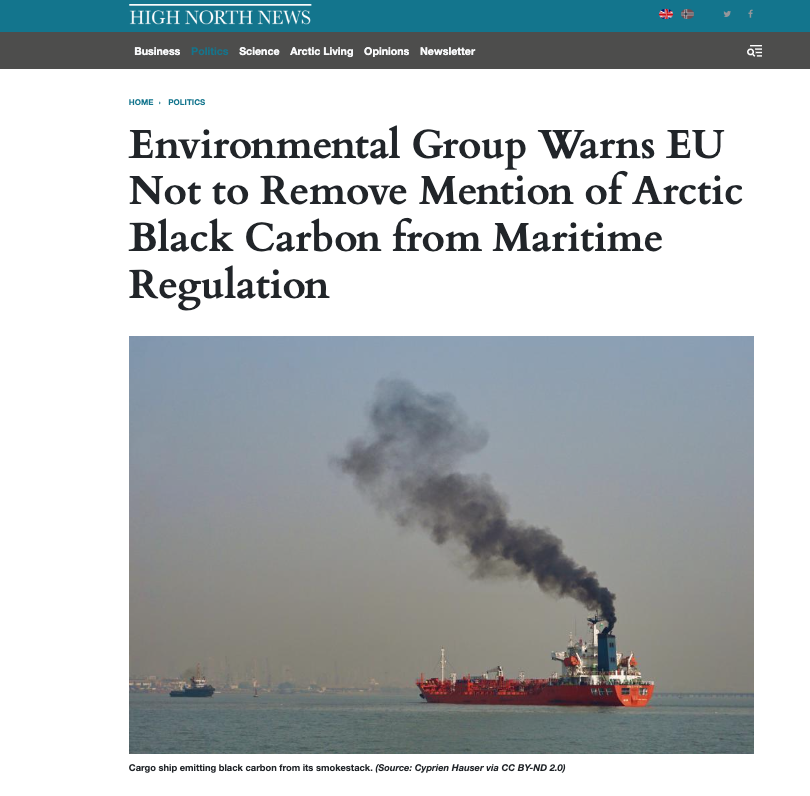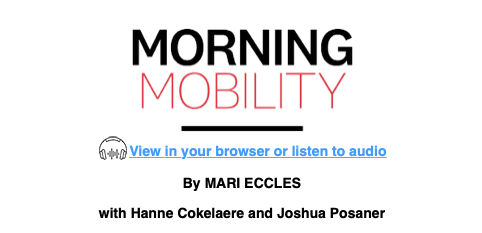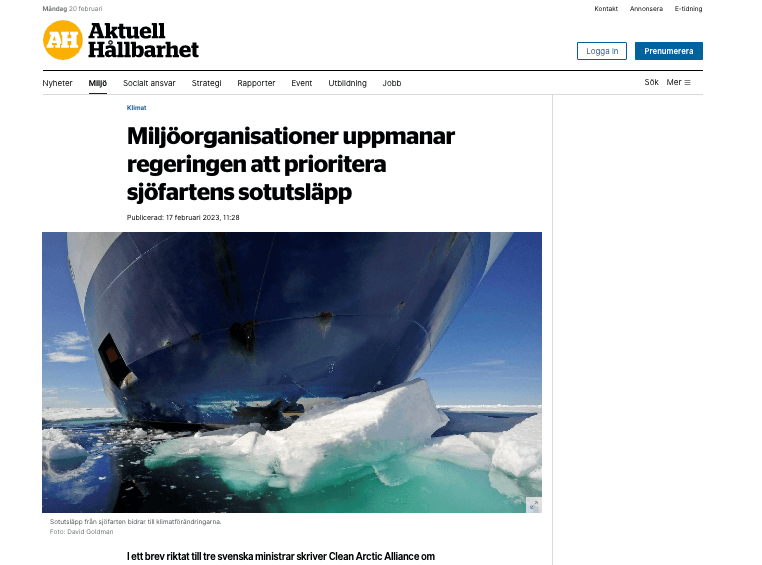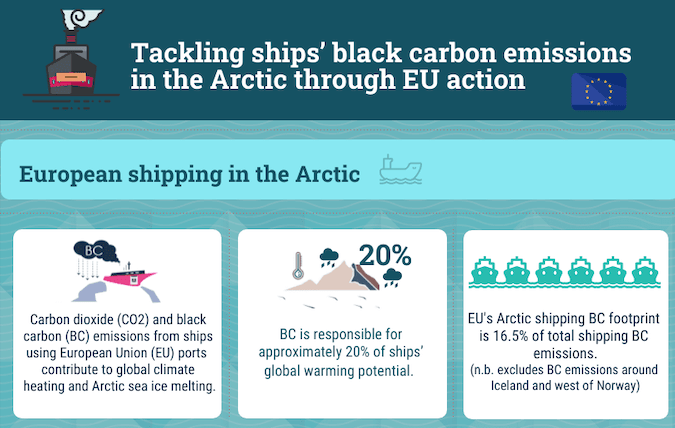Hanne Cokelaere, Politico EU Morning Mobility, 16 February 2023:
Black carbon alarm: Climate activists with the Clean Arctic Alliance sounded the alarm this week that negotiators could delete a demand by the Parliament that the Commission use a review of FuelEU Maritime to consider changes to the list of pollutants that the regulation covers — ”in particular the possibility to include black carbon (BC) emissions.” Black carbon refers to soot particles that increase solar absorption when they land on ice and snow, which are having an especially devastating impact in and near the Arctic, according to the nonprofits.
Sweden-shaming: In a letter the group sent to Sweden’s energy, environment and transport ministers on Wednesday, the Clean Arctic Alliance said it was “dismayed” that the Swedish presidency had omitted references to black carbon in compromise proposals prepared for today’s talks. “As an Arctic nation, Sweden will be fully aware of the ongoing extent of climate breakdown in the Arctic which will lead to catastrophic impacts across the globe,” the letter reads. “Decisions now being taken on the draft Fuel EU Maritime Regulation are a litmus test of the EU’s and indeed Sweden’s commitment to climate protection.”
But: The review clause is a tense subject for more reasons: Besides the inclusion of black carbon, the Parliament also wants the Commission to consider extending the measure’s scope to include smaller ships, and to apply it in full to sailings to or from non-EU ports.

The EU Council could remove mentions of black carbon emissions in the Arctic from the EU’s maritime regulation this week. Environmental activists warn that black carbon is detrimental to Arctic sea ice and needs to be curbed quickly and decisively.
“The EU’s Fit for 55 Fuel EU Maritime Regulation outcome being discussed in Strasbourg this week already fails to include a provision to regulate black carbon emissions, the largest source of shipping’s climate warming impact after CO2 – cutting any mention of doing so in the future is not only deplorable, it makes a complete mockery of the EU’s own commitments made in its 2021 Arctic Strategy to lead the world on reducing Arctic ship pollution,” explains Clean Arctic Alliance Lead Advisor Sian Prior.
Anders Hellberg, Aktuell Hallbarhet, Sweden, 17 February 2023: Environmental organizations call on the government to prioritize shipping’s soot emissions / organisationer uppmanar regeringen att prioritera sjöfartens sotutsläpp
The Clean Arctic Alliance, which consists of 20 environmental organisations, is concerned that politicians in the EU do not seem to be taking the issue of soot emissions from shipping seriously enough.
In a letter addressed to the Swedish government, the Clean Arctic Alliance writes that information has emerged that Sweden, in its capacity as chairman of the EU’s Council of Ministers, wanted to remove references to the climate impact of soot emissions. This is in the negotiations that have to do with Fuel EU Maritime, a regulation that sets requirements for reduced greenhouse gas emissions from fuel from ships that touch ports within the EU.
In the letter, the Clean Arctic Alliance reminds, among other things, that all the Arctic states have set the goal of reducing their soot emissions by 25-33 percent before 2025 based on 2013 levels.
The letter from the Clean Arctic Alliance is addressed to energy and nutrition minister Ebba Busch KD), climate and environment minister Romina Pourmokhtari (L) and infrastructure minister Andreas Carlson (KD).




